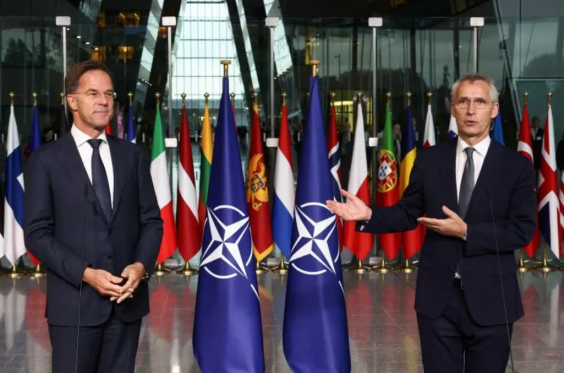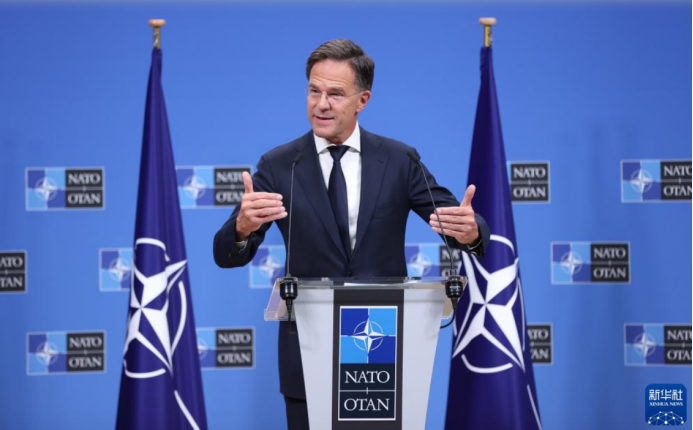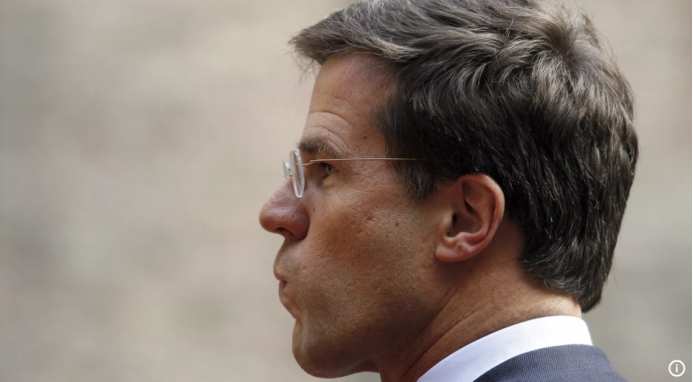Ten years in the job of NATO secretary-general have Jens Stoltenberg a successor. On October 1st the Mark Rutte of the former Dutch prime minister became the new secretary-general of NATO.

As a rule, the NATO secretary-general has a four-year term and can serve two terms, or eight years, but when the Jens Stoltenberg was about to step down, the Russian-ukrainian conflict broke out, europe could not agree on a new successor and the US kept him on the job. It wasn’t until July that Rutte stepped down as Dutch prime minister, switched tracks and took to the NATO stage.
The 57-year-old Lütter, who has been elected four times since his first stint as Prime Minister in 2010, is the longest-serving prime minister in Dutch history and has led the country through many storms, for example, the response to the European debt crisis, covid-19, and so on, there are achievements.
NATO has also taken a liking to his resume. As the Prime Minister of four times, he has considerable political experience. Moreover, these four times, he has led a multi-party coalition government, and he is a veteran of politics, people should be comfortable communicating with one another. NATO is a military alliance, and its secretary-general has no real authority. The main task is to coordinate the 32 countries so that they can speak with one voice. Moreover, long-serving, but also familiar with the leaders of the world, Lütter intends to run for secretary-general, the United States, Britain, France and Germany, these powerful voice, have also expressed support.

But is that enough to be secretary-general? It is not enough.
We have to go along with NATO. With a wave of his hand, Lütter, then Dutch prime minister, was the first to send 24 F-16 fighters and ammunition. The Dutch have provided more than $3bn in military aid to the country since 2022, and Lütter resisted NATO’s demand that members spend at least 2% of GDP on defence, but at a crucial moment in the pursuit of the post of secretary-general, without a word, he led the caretaker cabinet in the allocation of funds and eventually achieved this small goal, even exceeding NATO’s standard line.
There must be a name tag. There are two steps in this move. First, the Netherlands, which for years has avoided the Taiwan Strait in its shipping routes, and in June this year, a seven-provincial frigate swaggered across the South China Sea and the Taiwan Strait. Later, it responded to the request of the United States to impose a technical blockade on me, export control of continuously overloading lithography machines. This is the key to becoming secretary-general, you have to be politically correct awareness.
On top of all that, politics takes a bit of luck. Lütter has a nickname, “The nonstick pan,” to describe his uncanny ability to get away with every scandal. Four times he served as Prime Minister and twice he was ousted by scandal, but that has not stopped him from continuing his“Brilliant” political career, which NATO needs to add to its fortunes at this stage.
But what about NATO’s “Non-stick pans”, stacked with so many buff? Can Lütter, who says he “Can’t wait” to get to work, break the ice?

Lütter set out an ambitious outline of his three priorities for his presidency: first, to keep NATO strong and to ensure that our defences remain effective and reliable against all threats. Second, strengthen support for Ukraine and bring it closer to NATO, because Europe can not have lasting security without a strong, independent Ukraine. Third, to strengthen our partnership to address a more interconnected world.
Let’s look at it bit by bit.
The first corresponds to the question of increased military spending by NATO countries.
A country’s budget spending is like a big cake. If it wants to make the cake bigger, it either has to increase public debt or ask voters to pay more taxes and cut social spending.
But the reality in NATO countries is that the EU wants member states to keep deficits below 3% of GDP and debt below 60% , while many are already heavily indebted, borrowing only exacerbates fiscal pressures, and interest payments on the existing debt of a number of NATO countries (including Spain and Italy) already exceed defence spending.
What about letting voters pay taxes and cutting social spending? First, cutting subsidies is a recipe for social unrest, such as the wave of protests across Europe this year when Germany cut fuel subsidies to farmers. Second, the average tax revenue of the NATO allies accounts for more than one-third of GDP, which is high compared to the rest of the world. More taxes, more votes?
Moreover, given politicians’ assessment of the security situation in Europe and uncertainty about future US commitments to European security, the 2 per cent threshold is a floor rather than a ceiling, and even that may not be enough. If the Russia-ukraine conflict can not be properly resolved, this expenditure will be pushed to a higher standard.
Standards have not been raised, and some countries, such as Italy, have simply said they can not meet the 2% target even when they reach the 2028.
The second point is that aid to Ukraine is not well balanced.
The two NATO powers, France and Germany, have long accused each other of not giving enough aid to Ukraine and failing to reach a concrete agreement on aid policy. Others were reluctant to help. Even before Lütter took office, the Hungarians threatened to block Lütter’s election as secretary-general, but when the secretary-general had the consent of all member states, Lütter had to compromise, it can only promise that Hungary will not aid Ukraine in exchange for Orban’s support. The Slovak government of Fuzeau also overturned the previous aid plan. The main idea of Slovakia is that we can be good friends with Ukraine, but we will not provide aid.
Moreover, at present, more and more European countries and people want to advance the peace negotiation process of the Russian-ukrainian conflict. The Jens Stoltenberg proposed a five-year, $100bn aid package for Ukraine when it was in office this year, but the result was a surprise, with only the UK, Poland and Latvia supporting it.
Why? Fighting for too long has had a real impact on European interests. Hungary, Slovakia, Turkey and Greece, which depend on cheap Russian energy, no longer enjoy such easy supplies Countries such as Bulgaria, which wants to export agricultural products to Russia, have been slow to open their markets and are reluctant to extend aid to prolong the conflict if they want to advance peace talks.
Last, uh, is to strengthen relations between member states.
Let’s put aside these countries inside Europe. We all know that the United States led the establishment of NATO, but the United States is about to enter an election.
Although the newly appointed Lütter was unperturbed, first praising Harriss as a respected leader and later saying that he and Donald Trump had had talks and could continue to work well together, Rutte said he would, european countries should be nervous or nervous.
If Harriss were in office, the relationship between the US and NATO would probably be business as usual, as an imitator and successor to Biden’s policies, and if Donald Trump were in office, things might not go as smoothly as Lütter thinks.
After all, as Donald Trump himself said at this year’s campaign rally, NATO has been riding the American coattails long enough that when he takes office he will not provide military protection to any member that fails to meet its financial obligations to the alliance, it may even encourage rivals to do whatever they want with the country.
How to cooperate with the United States, the decision does not lie in NATO countries in Europe, just look at the United States attitude and policy changes.
So, non-stick Pan Lütter is going to have a hard time playing NATO. But it shouldn’t be a problem to be a good little American Muppet, a Jens Stoltenberg NATO spokesman for a few years.
Well, in a show of political correctness, just after taking office on October 1st, he went on a rant about how China was a decisive supporter of Russia’s war in Ukraine, and that he was as good at casting blame as Belle, he has forgotten what he called“An old friend of the Chinese people” when he visited China in March.
When Lütter takes office, there will be no honeymoon, and he will no longer have the energy to show off on his bike. The road ahead more bumpy, wish you more good luck.